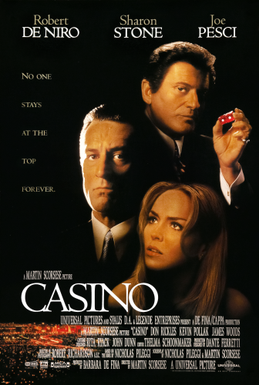If I Were Boss may refer to:
- If I Were Boss (1938 film), a British drama film
- If I Were Boss (1934 film), a French comedy film
If I Were Boss may refer to:

A doppelgänger, sometimes spelled doppelgaenger or doppelganger, is a ghostly double of a living person, especially one that haunts its own fleshly counterpart.

Parthasarathy Srinivasan, known professionally as Kamal Haasan, is an Indian actor, film director, film producer, screenwriter, choreographer, playback singer, lyricist, television presenter, social activist and politician who works in Tamil cinema. Besides Tamil films, he has also appeared in some Malayalam, Telugu, Hindi, Kannada and Bengali films. Considered as one of the greatest and most respected actors in Indian cinema, Haasan is also known for introducing many new innovations to the Indian film industry. He has won numerous accolades, including four National Film Awards, nine Tamil Nadu State Film Awards, four Nandi Awards, one Rashtrapati Award, two Filmfare Awards and eighteen Filmfare Awards South. He was awarded the Kalaimamani Award in 1984, the Padma Shri in 1990, the Padma Bhushan in 2014 and the Order of Arts and Letters (Chevalier) in 2016.
Boss may refer to:

Casino is a 1995 epic crime drama film directed by Martin Scorsese, adapted by Scorsese and Nicholas Pileggi from the latter's nonfiction book Casino: Love and Honor in Las Vegas. It stars Robert De Niro, Sharon Stone, Joe Pesci, Don Rickles, Kevin Pollak, and James Woods. The film was the eighth collaboration between director Scorsese and De Niro.

Alyssa Jayne Milano is an American actress and activist. She has played Samantha Micelli in Who's the Boss? (1984–1992), Jennifer Mancini in Melrose Place (1997–1998), Phoebe Halliwell in Charmed (1998–2006), Billie Cunningham in My Name Is Earl (2007–2008), Savannah "Savi" Davis in Mistresses (2013–2014), Renata Murphy in Wet Hot American Summer: Ten Years Later (2017), and Coralee Armstrong in Insatiable (2018–2019). As an activist, Milano is known for her role in the MeToo movement in October 2017.

Rimi Sen, also known professionally as Rimi or Rimii, is a former Indian actress and producer who appears in Hindi, Telugu, and Bengali films. Sen debuted as child actress in the 1996 Bengali film Damu. She made her debut as a lead actress in 2002, in the Telugu film Nee Thodu Kavali. In 2003, she made her Hindi film debut in the comedy film Hungama for which she was nominated at the Filmfare Awards for Best Female Debut. Subsequently, she appeared in several successful films including Baghban (2003), Dhoom (2004), Garam Masala (2005), Kyon Ki (2005), Phir Hera Pheri (2006) and Golmaal: Fun Unlimited (2006). She also participated in the reality television show Bigg Boss in 2015.

Transylvania 6-5000 (1963) is a Warner Bros. Merrie Melodies animated short directed by Chuck Jones. The short was released on November 30, 1963, and stars Bugs Bunny.

Charles Peckham Day is an American actor, writer, and producer. He is best known for playing Charlie Kelly on the FX comedy It's Always Sunny in Philadelphia (2005–present), which he stars in with Rob McElhenney, Kaitlin Olson, Glenn Howerton and Danny DeVito, and of which he is also a writer and an executive producer. In 2011, he was nominated for a Critics' Choice Television Award and a Satellite Award for the role. He subsequently co-created the Fox sitcom The Cool Kids (2018–2019) with Paul Fruchbom and the Apple TV+ comedy Mythic Quest (2020–present) with McElhenney and Megan Ganz, and continues to executive-produce the latter.
Over the top may refer to:

Boss Nigger is a 1975 blaxploitation Western film directed by Jack Arnold, starring former football player Fred Williamson, who also wrote and co-produced the film. It is the first film for which Williamson was credited as screenwriter or producer.

Scientology and Me is a television documentary first broadcast on 14 May 2007 as part of the BBC's Panorama series. In it, reporter John Sweeney visited the United States to investigate whether the Church of Scientology was becoming more mainstream. The programme gained particular controversy before and during filming due to unresolved differences on content and approach between Sweeney's production team and Scientology members. Tommy Davis, the international spokesperson for Scientology, did not want the BBC to interview any detractors or perceived enemies of the church or include them in the documentary, and attempted to censor any references to Scientology as a "cult."
Big Boss or The Big Boss may refer to:

Bigg Boss 3 is the third season of the Indian reality TV programme Bigg Boss. It began airing on 4 October 2009 on Colors TV with Bollywood actor Amitabh Bachchan as the host. The 84-episode series ended on 26 December 2009 with actor Vindu Dara Singh emerging as the winner. Pravesh Rana was the first runner-up.

Hina Khan is an Indian actress who appears in Hindi and Punjabi films and television. One of the highest-paid television actresses in India, Khan is widely recognised for portraying Akshara Maheshwari Singhania in Yeh Rishta Kya Kehlata Hai. She is a recipient of several accolades including three ITA Awards, three Indian Telly Awards and seven Gold Awards.

Sana Khan is an Indian businesswoman and former actress. She primarily worked in Hindi, Tamil, and Telugu language films before retiring from the industry in 2020.

Horrible Bosses is a 2011 American black comedy film directed by Seth Gordon, written by Michael Markowitz, John Francis Daley, and Jonathan Goldstein, from a story by Markowitz. It stars Jason Bateman, Charlie Day, and Jason Sudeikis, alongside Jennifer Aniston, Colin Farrell, Kevin Spacey, and Jamie Foxx in their supporting roles. The plot follows three friends, played by Bateman, Day, and Sudeikis, who decide to murder their respective overbearing, abusive bosses, portrayed by Spacey, Aniston, and Farrell.

The Female Boss is the debut studio album by English singer-songwriter and N-Dubz member Tulisa. It was released on 3 December 2012 via All Around the World and Island Records. The album's artwork was revealed on 6 October 2012 via Tulisa's official Facebook page. The Female Boss originally was to be released on 26 November but was pushed back by one week. It incorporates hip hop, grime and R&B styles while enlisting a variety of producers; The-Dream, Fazer, Stereotypes, Rico Love, Diane Warren and Ed White, among others. The album features guests appearances from British rapper Wiley, American rapper Tyga and Nines. Three singles preceded the album's release; the lead single "Young" peaked at number 1 while "Live It Up" and "Sight of You" peaked within the top 20 of the UK Singles Chart.

Springsteen & I is a 2013 documentary-biographical film directed by Baillie Walsh documenting the life and career of Bruce Springsteen through the eyes and insights of his fans throughout the world.

The Boss Baby is a 2017 American animated comedy film produced by DreamWorks Animation and distributed by 20th Century Fox. Loosely based on the 2010 picture book of the same name by Marla Frazee, it was directed by Tom McGrath from a screenplay by Michael McCullers, and stars the voices of Alec Baldwin as the title character, along with Steve Buscemi, Jimmy Kimmel, Lisa Kudrow, Miles Bakshi, and Tobey Maguire. The first installment in The Boss Baby franchise, the plot follows a boy helping his baby brother who is a secret agent in the war for adults' love between babies and puppies.

Bigg Boss 12, also known as Bigg Boss: Vichitra Jodis is the twelfth season of the Indian reality TV series Bigg Boss which is based on the Dutch series Big Brother, and premiered on 16 September 2018 on Colors. The launch episode was titled "Bigg Night". Salman Khan hosted the season for the ninth time. The grand finale of the show took place on 30 December 2018 when Dipika Kakar emerged as the winner.